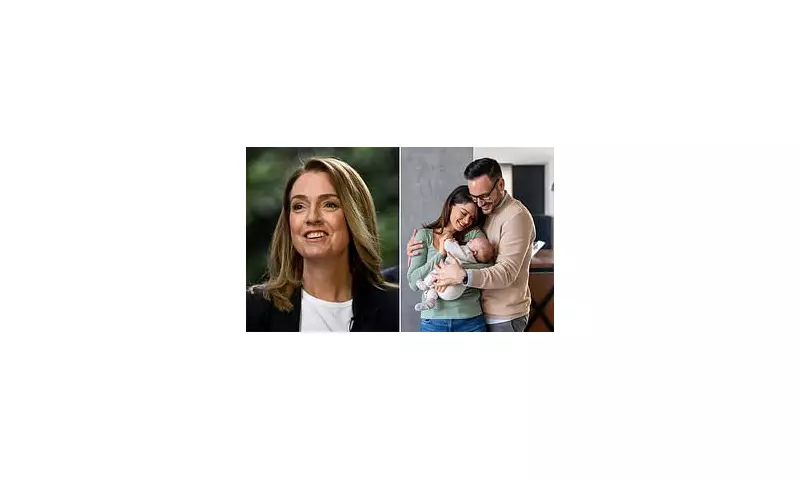
Australia Faces 'Baby Recession' as Birth Rates Plummet
Newly appointed NSW Opposition Leader Kellie Sloane has issued a stark warning about Australia's declining birth rates, describing the situation as a 'baby recession' that requires immediate government intervention. The Liberal leader has called for the reinstatement of the controversial baby bonus scheme to address the nation's growing demographic crisis.
Speaking on Sky News on Sunday, Sloane emphasised that boosting birth rates must become a national priority. 'I'd love to see the federal government look at things like Peter Costello's baby bonus. We are in a baby recession. We need a baby boom,' she declared, referencing the cash payment policy introduced by the Howard government in 2004.
The Rise and Fall of Australia's Birth Rates
The original baby bonus scheme proved remarkably effective during its implementation. Starting at $3,000 per child and later increasing to $5,000, the policy directly contributed to a significant surge in Australia's fertility rate. By 2008, the rate had climbed to 2.02 births per woman, marking a thirty-year high that approached the population replacement level.
However, current statistics paint a concerning picture. Australia's fertility rate has now collapsed to a record low of 1.48 babies per woman, substantially below the replacement threshold of 2.1. Demographic experts warn that the country may soon reach a point of no return, with projections indicating deaths will outnumber births by mid-2050 if current trends continue.
Modern Barriers to Family Planning
Sloane highlighted the growing disconnect between corporate policies and family support, noting that while major companies offer financial incentives for women to freeze their eggs, ordinary families struggle with basic costs. 'This is where we've got to as a country. There has got to be a better way,' she commented, expressing frustration at current priorities.
The opposition leader also criticised the Minns Labor Government for eliminating the $2,000 IVF rebate introduced in 2022, arguing this decision has made fertility treatments inaccessible for many couples. With one in seven families in NSW experiencing fertility challenges, Sloane stressed the importance of supporting homegrown population growth, particularly as immigration discussions gain prominence.
Australians are now having children later than ever before, with the median age for mothers reaching 32.1 years and fathers 33.9 years. Soaring living expenses and astronomical housing prices have forced many couples to delay family planning decisions, exacerbating the demographic decline.
Political Divisions on Population Policy
Sloane's position places her at odds with federal coalition counterparts who have indicated they will not revive the baby bonus. A spokesperson for Opposition Leader Sussan Ley stated, 'We are reviewing our policies to develop an economic agenda that gives Australians choices about how they want to live their lives and fulfil their aspirations.'
The federal opposition has instead committed to delivering substantial personal income tax cuts for working families and helping younger generations achieve financial security before starting families.
Treasurer Jim Chalmers similarly dismissed calls to resurrect the baby bonus in August, emphasising the government's focus on 'more enduring' reforms. These include subsidised childcare and expanded paid parental leave schemes designed to provide sustained support rather than one-off payments.
In another departure from federal coalition policy, the new NSW Liberal leader has pledged to maintain the state's commitment to achieving net zero emissions by 2050, reinforcing the party's position established just last week before her appointment.
As Australia confronts its demographic challenges, the debate over how best to support families and encourage population growth continues to divide political leaders across different levels of government.






